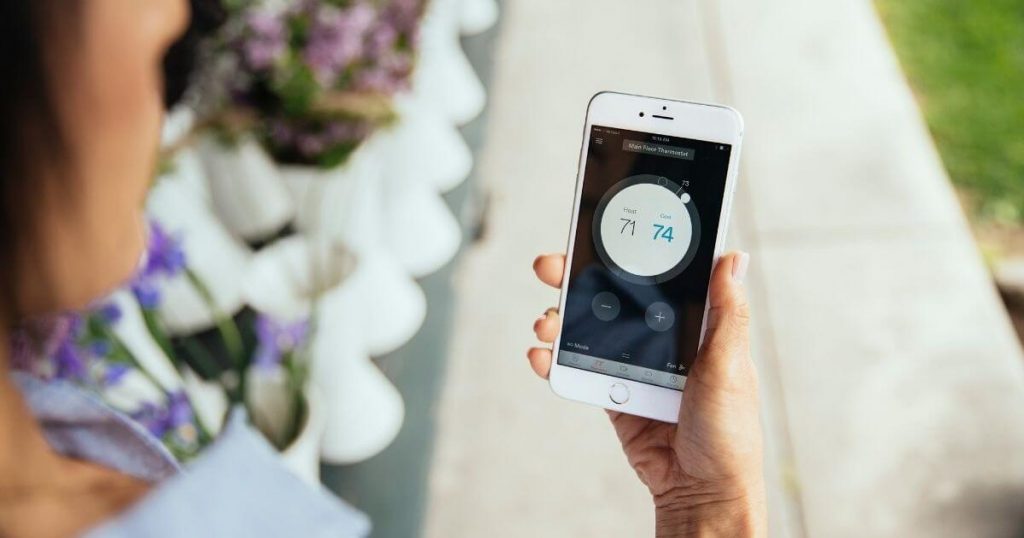Reviewed by health expert Sally Russell, MN, CMSRN, CNE
Local Poison Control Resources
For over 11 years, SafeWise experts have conducted independent research and testing to write unbiased, human reviews (not robots). Learn more.
If you suspect someone has been poisoned, call the Poison Control Center at +1-800-222-1222 or call 911.
No matter how much you babyproof, it seems like tots always find something to put in their mouths. To help you be better prepared for a poison emergency, we’ve rounded up a list of local Poison Control resources and some tips on how to handle a poisoning situation.
Poison control resources

By signing up, you agree to our Terms and Conditions and Privacy Policy.
Poison Control Center contact information
If you think someone has been poisoned or have questions about poisons around your home, call the American Association of Poison Control Centers at +1-800-222-1222. Another option is to text POISON TO 797979.
You can also use the American Association of Poison Control Centers’ triage tool on its website. While the tool can be helpful for non-emergency questions about poisons, we recommend calling the hotline. If the triage tool can’t figure out the problem, it will direct you to call the hotline anyway.
When should I call 911 instead of Poison Control?
If the person is having trouble staying awake or breathing, or if they ingested something that can cause chemical burns like lye or bleach, call 911 instead of Poison Control.
Also, if you suspect an overdose of prescription medications, it’s vital to call 911 so the person can get emergency care right away. In these situations, the medication may slow down the heart rate or respiratory rate to dangerous levels.

Local Poison Control Center contact information
No matter where you live, the Poison Control Center number is the same: +1-800-222-1222. And each state and territory has a website dedicated to local poisoning help and information. These state sites can keep you up-to-date on local health concerns and safety classes in your area.
Some states and territories use other states' sites or regional sites as their official website. If you click on a link and it takes you to an unexpected website, don’t worry. That’s the official site.
State local poison control centers
- Alabama Poison Information Center
- Alaska Poison Control System
- Arizona Poison and Drug Information Center
- Arkansas Poison Center
- California Poison Control System
- Colorado: Rocky Mountain Poison and Drug Center
- Connecticut Poison Control Center
- Delaware: Delaware Coalition for Injury Prevention
- District of Columbia: National Capital Poison Center
- Florida Poison Information Center Network
- Georgia Poison Center
- Hawaii Poison Center
- Idaho: Nebraska Regional Poison Center
- Illinois Poison Center
- Indiana Poison Center
- Iowa Poison Control Center
- Kansas Poison Control Center
- Kentucky Poison Control Center
- Louisiana Poison Center
- Maine: Northern New England Poison Center
- Maryland Poison Center
- Massachusetts: Regional Center for Poison Control and Prevention
- Michigan Poison Center at Wayne State University School of Medicine
- Minnesota Poison Control System
- Mississippi Poison Control Center
- Missouri Poison Center at SSM Health Cardinal Glennon Children’s Hospital
- Montana: Rocky Mountain Poison & Drug Safety
- Nebraska Regional Poison Center
- Nevada: Rocky Mountain Poison & Drug Safety
- New Hampshire Northern New England Poison Center
- New Jersey Poison Information and Education System
- New Mexico Poison and Drug Information Center
- New York City Poison Control Center, Upstate New York Poison Control Center
- North Carolina Poison Control
- North Dakota Poison Education Center
- Central Ohio Poison Center
- Oklahoma Center for Poison & Drug Information
- Oregon Poison Center
- Pennsylvania: Pittsburgh Poison Center
- Rhode Island Poison Control
- South Carolina: Palmetto Poison Center
- South Dakota: Sanford Poison Education Center
- Tennessee Poison Center
- Texas Poison Center Network
- Utah Poison Control Center
- Vermont Northern New England Poison Center
- Virginia Poison Center
- Washington Poison Center
- West Virginia Poison Center
- Wisconsin Poison Center
- Wyoming: Nebraska Regional Poison Center
United States territory local poison control centers
As your child grows, continue to baby-proof your home. Go through room-by-room and check for items that could poison toddlers and older children using our poison proofing guide.
If you know what poison the person swallowed or touched, always look at the label to see if there is anything to do right away. For example, certain household cleaning products labels suggest drinking milk or water to dilute the poison before calling for help.
Vomiting can do more damage than good. Don’t induce vomiting unless instructed to do so by Poison Control or a 911 dispatcher.¹
What to expect when calling Poison Control
Nothing will completely prepare you for a poisoning emergency, but it’s helpful knowing what to expect when you call Poison Control. Here are some questions that are common on a call:
- What is the poison?
- Do you have the bottle or container? If it's a prescription, you may be asked the fill date to help determine how many pills were taken.
- How old is it? This information can help figure out how degraded the poison might be.
- How long ago did it happen?
- What are the symptoms? Nausea, pain, foaming at the mouth?
Though lead poisoning is slower and less obvious, it can be just as devastating. Be sure to check your home for lead to prevent future problems.
Additional questions about poisoning
No, the medical community has determined that ipecac syrup is not a good remedy for poisoning.²
Get outside immediately and call 911.³
Call the Poison Center Network at +1-800-222-1222. A lick or a couple drops probably won’t hurt your child, though. ⁴
Related articles on SafeWise
Sources
- Kentucky Poison Control Center, “Poison Myths and Realities.” Accessed January 4, 2024.
- National Capital Poison Center, “Ipecac Don’t Use It.” Accessed January 4, 2024.
- Mayo Clinic, “Carbon Monoxide Poisoning.” Accessed January 4, 2024.
- Texas Poison Control Center Network, “Hand Sanitizers: How Toxic Are They?” Accessed January 4, 2024.
Recent Articles



